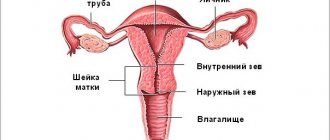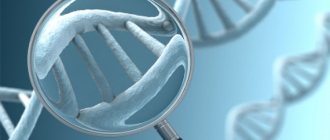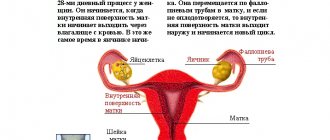Just recently, your daughter was interested in Barbie outfits, but today she listens carefully to advertisements for products “with wings.”
At what point does a girl begin to turn into a girl and what is important to know about the characteristics of adolescence is described in our article “Transitional age in girls.”
What is puberty?
What is puberty? It is understood as the process of a person’s transition from childhood to adulthood. Moreover, during pubertal changes, both psychological and physiological fluctuations occur. Puberty ends with puberty, at which the body is ready for procreation, i.e. reproduction. During this transitional period, adolescents change greatly in appearance. Their facial features and body become more mature.
Appearance is not the main indicator of puberty. The psychological aspect is more important. Therefore, you should constantly talk with your child so that he does not make mistakes at this transitional moment.
Age of puberty
What age is considered puberty for boys and girls? It is worth making a reservation right away: you cannot definitely name only one number, for example, 9 or 13 years. Everything here is very individual. In addition, there are several stages in boys and girls during which they go through puberty.
In boys
The first stage of puberty in boys occurs between 9 and 11 years of age. This does not mean at all that noticeable changes will occur throughout the 3 years. For some, they may occur at age 10 or only at age 11. During this period, an enlargement of the penis and elongation of the testicles are observed. Folds form on the scrotum, pigmentation occurs, and the voice breaks. In some cases, gynecomastia may occur, but it is temporary. The first hairs form in the pubic area (there are none in the armpits yet).
Photo source: shutterstock.com
The next stage is 12-14 years. This stage is associated with even greater growth of the testicles and penis. Vegetation forms in various parts of the body. Gynecomastia goes away, but spontaneous emissions and erections begin. Puberty ends in boys at age 15 or a little later. By this age, the growth of a young man reaches the parameters of an adult man. The voice becomes normal.
For girls
For girls, the transition period usually lasts from 8 to 13 years. But for most, the first stage occurs at 9-11 years of age. During this period, the size of the hands and feet changes and becomes larger. Breasts begin to form. The first vaginal discharge often appears.
Photo source: shutterstock.com
The next stage occurs at 12-14 years and, as a rule, ends during this period. Hair appears in the armpits and pubic area. Acne often occurs. Growth actively increases, menstruation begins, facial features change.
Hypothalamic syndrome
One of the common disorders is hypothalamic syndrome of puberty. This is a condition associated with a violation of the secretion of releasing factor by the hypothalamus, which triggers the entire hormonal axis “pituitary gland - ovaries - uterus”. The causes of this pathology have been little studied, but it is known that it occurs more often in girls whose parents have endocrine diseases (obesity, diabetes). A provoking factor may be increased physical or emotional stress, dieting, overeating, improper sleep patterns and other healthy lifestyle disorders. The disease most often occurs in adolescents who in infancy suffered birth trauma, encephalopathy and other conditions that could negatively affect the development of the nervous system.
Hypothalamic syndrome is less common in girls than in boys. It develops after puberty, 2-3 years after the start of menstruation. Its manifestations are associated with excessive secretion of gonadotropins, androgens, gestagens, as well as a relatively low amount of estrogen.
Main symptoms of the pathology:
- increased body weight and accelerated growth;
- cardiopalmus;
- feeling hot, sweating;
- facial hair growth;
- headache;
- increased body temperature for no apparent reason;
- emotional disorders - changes in eating behavior, apathy, lethargy, drowsiness.
Hypothalamic syndrome in adolescents does not have clear diagnostic criteria, and its existence is not recognized by all doctors. Typically, girls are prescribed treatment, including a balanced diet, sedatives and hormonal medications, and general restoratives.
Physiological signs of puberty
What happens to a child's physiology during puberty? During this period, a person’s appearance and body undergo enormous changes. Of course, they are different for boys and girls.
In boys
The main feature of puberty in young men is the growth of the genital organ. How much does it increase? Usually during this time the penis reaches a length of about 6-7 cm. At the same time, the testicles necessarily grow. Vegetation also appears on the pubic area. When the restructuring of the body is completed, you can observe that hair has appeared all over the body, including fluff in the area of the upper lip. Subsequently, it becomes denser, thicker and tougher.
Among other signs, it is worth noting not the most pleasant changes in the condition of the skin. Not only girls, but also boys experience acne and pimples. Sebum secretion increases, the skin becomes denser and rougher.
Photo source: shutterstock.com
The body parameters themselves also change. There is an increase in muscle mass. The pelvis becomes narrower, and the shoulders, on the contrary, become wider. But the most noticeable formation is the formation of the Adam's apple. In the photo you can see what it looks like. The voice also becomes rougher and breaks. But in the later period it normalizes and becomes ordinary, masculine.
For girls
Between the ages of 8 and 14, girls undergo enormous changes in their appearance. All this is associated with puberty, as the teenage body is actively preparing for the possibility of bearing a child in the future. Therefore, among the innovations we can note:
- changes in body shape (fat deposits often appear in some places);
- the appearance of hair in the pubic area and axillary area;
- general increase in body weight;
- heavy sweating, often with an odor that did not occur in the early period;
- the presence of natural vaginal discharge.
Maximum growth of the entire organism is observed. The mammary glands also begin to actively enlarge. But it cannot be said that breasts acquire a certain shape in 1 year or month. This is a long process that can take from 5 to 7 years.
Photo source: shutterstock.com
Among other physiological changes, one can note the frequent appearance of acne on the body and face. It is equally important that during these years girls experience their first menstruation. Over the entire period of restructuring of the body, the cycle is adjusted. Gradually it becomes permanent.
Changes in organs and systems during puberty
Under the influence of hormones, changes occur not only in the reproductive system, but also in other organs. This is sometimes associated with some symptoms that worry the child and parents. As a result, they are treated for a long time and unsuccessfully; over time, all these physiological changes disappear on their own. Of course, if you have doubts about the child’s health, you need to show him to a doctor. However, it is worth knowing some signs that are characteristic specifically of the puberty period in girls.
- The cardiovascular system
The rapid growth of bones and muscles outpaces the increase in the heart and vascular bed. Therefore, to properly supply the growing body with blood, the heart beats faster. Many girls have a tendency to lower blood pressure. Against the background of rapid heartbeat, cardiac output decreases. Under the influence of any pathological influences (stress, staying in a stuffy room, fatigue) this can cause fainting. A single such case is not dangerous, but if fainting occurs regularly, it is necessary to show the child to a doctor.
- Digestion
A teenager's digestive system is very active. Therefore, muscle spasms, periodic abdominal pain, a tendency to loose stools, and nausea are possible. It is necessary to establish regular, nutritious nutrition for the girl and be sure to monitor her weight. At this age, both weight loss and excess body weight are dangerous.
- Breath
Sometimes girls complain of feeling short of breath. This is due to the body's increased need for oxygen. Therefore, the child should be in a ventilated room and spend more time in the fresh air. Bronchial asthma rarely occurs for the first time at this time, but if attacks of dry cough appear, you should consult a pulmonologist.
- Nervous system
The brain and peripheral nerves are already well formed. Therefore, it is necessary to pay attention to any signs of trouble - headaches, cramps, dizziness, numbness or tingling in the limbs. Such signs should not exist during the normal course of puberty.
Psychological signs of puberty
The characteristics of puberty will not be complete without noting the psychological changes in adolescents. This affects both boys and girls to a greater or lesser extent. But what do parents most often have to deal with?
In boys
The psychological component is many times stronger and brighter than it might seem. What changes in the character of young men occur with the onset of puberty? Here are the main manifestations:
- isolation;
- aggressiveness;
- diffidence;
- bitterness;
- hot temper.
Usually all these innovations in the character of a calm and friendly boy just yesterday are associated with changes in appearance. Many young men are unhappy with the way their body is changing. Therefore, self-rejection arises, which often develops into depression.
Photo source: shutterstock.com
In boys during adolescence, under the influence of excess hormones, their mood changes dramatically. Therefore, parents should not attribute this to disrespect for themselves. It’s just difficult for a child to cope with his hormones.
Also, teenagers during this period are jealous of their desires, personal time and space. They do not want to attend school or previously chosen clubs. They want to manage their time independently. They insist on making their own decisions about literally everything. But this is especially evident when choosing hairstyles, clothes, gadgets and accessories.
For girls
It cannot be said that only boys change in character during this transitional period. Excess hormones also affect the behavior of girls. Only in these years they become far from the cutest and most beautiful! Hormonal imbalance has a tremendous impact on behavior. They are prone to fluctuations in the emotional sphere. Now the girl is laughing, and a few minutes later she is crying uncontrollably.
Photo source: shutterstock.com
Many girls become naughty. They argue with their parents and refuse to fulfill basic requirements. Studying and hobbies often fall by the wayside. They spend most of their time in the company of friends. During this same period, most girls experience the first manifestations of sexual desire.
Emotional changes
The psychology of puberty is associated with a variety of emotional experiences. It is better if the girl has a trusting relationship with her mother, who can answer any questions that arise.
Main changes in emotional state:
- Emotional instability
The girl experiences many emotions, she has many thoughts and ideas. She may feel embarrassed and awkward, especially when interacting with boys. She also gets upset easily and takes offense, primarily at family and friends. Whims, causeless tears and a minute later laughter are a normal state for a teenager. It is worth paying attention to depressed mood and sadness if they last more than 1 week.
- Constant fatigue
The child may get tired quickly or feel hungry all the time. Puberty is a time of very rapid growth, so you need at least 9 hours of sleep a day. He should eat a variety of healthy foods. These include whole grain bread, rice, vegetables, dairy products, meat and fish. This type of nutrition will help the teenager feel more active and reduce emotional instability. It is better to give up sweets, chips and fast food. They can not only provoke acne, but will also cause excess weight - a real “scourge” of the modern girl.
- Dissatisfaction with your appearance
Teenagers often feel discomfort about their appearance and are embarrassed by the changes that are taking place. Comparing herself with her friends, the girl sees the difference in their development. However, you need to understand that puberty is different for everyone, so such differences are normal, and body changes will ultimately lead to the formation of a feminine figure.
- Changes in relationships
The girl's relationship with her family changes. She prefers to spend time with friends rather than with relatives. Sometimes she has the feeling that her parents do not want to know about her experiences. This is a normal psychological reaction. In fact, parents need to be ready to unobtrusively help the growing girl, to give her confidence that she can always count on them.
Early puberty
Early puberty is often distinguished separately. But what does it mean? In fact, this is simply the first stage of restructuring of the child’s body.
Birth control pills: which one is better to choose without doctor's advice
At this stage you may experience:
- growth of the hands;
- a hint of breast formation in girls;
- increase in foot size.
Girls also experience their first vaginal discharge. Children begin to sweat more. At the same time, this smell is more pungent than it was before. Therefore, at this stage it is so important to carefully monitor personal hygiene. This will avoid unpleasant odor, untidy appearance, inflammation, and severe skin problems.
What time do changes occur? It’s difficult to say for sure, since hormonal changes are a complex and individual process. But on average it begins at 9-10 years of age.
Ways to solve them
Parents and teachers must understand the characteristics of this age. Emotional instability subsides at the age of 14-15, so you need to try to be calm and not react emotionally to the child’s behavior.
It is necessary to monitor the nutrition of adolescents, in particular girls, so that their weight does not become critical.
Parents should also talk about the problem of acne and proper skin care to prevent squeezing pimples and causing infection.
Try to communicate with teenage children more often, praise them and emphasize their merits.
Second puberty
At what age does second puberty occur? Usually this term is usually understood as the stage of change, which falls at 11-12 years. Typically, at this stage, girls experience their first menstruation and boys experience wet dreams. Children are growing actively.
Photo source: shutterstock.com
Often, as teenagers grow rapidly, they gain extra pounds. Facial features and body are also rapidly changing. Vegetation appears in the armpits and pubic area. A frequent companion of this period is acne on the face, back, chest, forearms, etc.
Difficulties of puberty
Puberty is an emotionally difficult time for both teenagers and parents. Usually all problems are related to the fact that mothers and fathers are unprepared for changes in the appearance and character of their children. The situation is aggravated by the fact that yesterday's cute babies can behave extremely contradictory. The opinions of strangers are extremely important to them.
Many boys and girls strive to be as fashionable as possible or simply different from those around them. Therefore, piercings, tattoos, etc. appear on their body. Many teenagers experiment with radical hairstyles and non-standard coloring. Tastes in clothing change.
Photo source: shutterstock.com
Teenagers react especially sharply to people’s feedback regarding their appearance. All criticism (even in the mildest and most benevolent form) is met with hostility. Also appear:
- constant mood swings;
- self-confidence;
- frivolity;
- maximum desire for freedom;
- harsh judgments of others.
It is not surprising that problems are brewing in many families, which often result in scandals.










